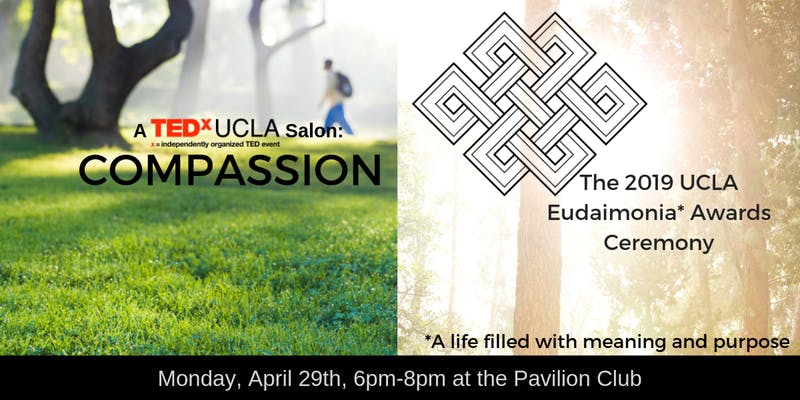Eudaimonia Honoree Spotlight: Peter Whybrow
For the second year in a row, the Healthy Campus Initiative is hosting the UCLA Eudaimonia Awards. This year’s ceremony will be held tonight, April 24th, after a TEDxUCLA Salon on the subject of altruism at the Pauley Pavilion Club. What is eudaimonia? It’s human flourishing, living a good life, prosperity, happiness, and how people live to achieve these goals. The ceremony will honor remarkable people in the UCLA community for living lives rich in meaning and purpose. One of the honorees is Dr. Peter Whybrow, the chair of the Department of Psychiatry and Biobehavioral Sciences at UCLA, physician-in-chief at the Lynda Resnick Neuropsychiatric Hospital, and author of the book The Well-Tuned Brain.
AF: What is something unexpected or something that we may not know about you?
PW: I grew up in the rural countryside in England. I spent most of my young life wandering around by myself and with friends, riding bicycles, working on the local farm, and generally becoming enchanted by the countryside and nature. This is how I got into studying biology and endocrinology, and later psychiatry. These experiences triggered in me a real appreciation of the human within the place of the world.
AF: What does eudaimonia mean to you?
PW:It gives you purpose in life, but it doesn’t just happen. It only comes through hard work. [Eudaimonia] is not something that descends on you, it’s something that you really have to work at. The natural state of the human mind is not just joy and happiness, in fact, it’s instinctually driven, self-interested, focused on the first term, and ruled by habit. Most people don’t sit around enjoying the sunny day, they’re flying around all over the place. The important thing to remember is that eudaimonia comes from a true understanding of the world and awareness of it.
We have wonderful powers of reason and personality, but we don’t use all of that in the world. A lot of imagination is fed to us through technology, and I’m a strong believer that we need to pay attention to the human world, to the natural world, and out of that grows a sense of responsibility and character that then brings harmony and a joy of living. That’s why we have to work hard at it, we have to override this sense of self interest and the way in which we are built.
AF: What advice would you give to someone looking for meaning and purpose in their life?
PW: It doesn’t happen naturally. If you follow Adam Smith’s cardinal values: fairness, benevolence, and prudence, it builds character, and if you have character, in the long run, I submit you will have eudaimonia. You will be flourishing because you have joy in yourself and all the things you do for other people. Being attached to others allows you to find this sense of balance that eudaimonia applies.
AF: Time is often a barrier for wellbeing for students and many others. Any advice on prioritizing wellbeing amidst a busy schedule?
PW: That’s true, but it’s only because they make it so. Self-regulation is not done all by yourself, of course, it’s learned from the people you grow up with, your parents, and significant people in your environment. But self-regulation comes from a thoughtful understanding of the way in which individuals are and then recognizing the priorities of what is good for them and what is not good for them, and that is what wellbeing is all about. So when you say that time is often a barrier to wellbeing, I don’t believe that. The misuse of time is a barrier to wellbeing, but you’ve got to learn how to self-regulate yourself to use time appropriately. Unfortunately, we live in times which that does not easily happen. You can’t cultivate eudaimonia in a debt-fueled consumer society where material gluttony is in fact the order of the day. We want more, we want our machines to go faster. We are our own worst enemy. It’s not just the marketplace, it’s the way we have interpreted the market place.
AF: What gives you purpose in life?
PW: The joy of humans. Not only knowing yourself, but in the ways that you extend yourself to others in ways that are pleasurable and valuable to them, and very giving to one’s own self.
Aubrey Freitas is an undergraduate student at UCLA double majoring in English Literature and Psychology with a minor in Italian. She is a blogger for the UCLA Healthy Campus Initiative in the Mind Well section, which focuses on the importance of mindfulness and mental health. Aubrey is the founder of the organization Warm Hearts to Warm Hands, which teaches the skill of knitting to people of the community in return for their donation of an article of clothing they create with the skill, to be given to local homeless shelters.


